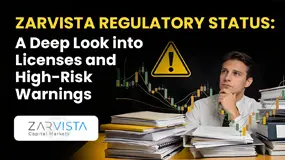Abstract:Nigeria's currency rose 0.28 percent compared to the dollar in the official market on Friday, a day after the Central Bank of Nigeria's governor, Godwin Emefiele, insisted on a managed float system.

Nigeria's currency rose 0.28 percent compared to the dollar in the official market on Friday, a day after the Central Bank of Nigeria's governor, Godwin Emefiele, insisted on a managed float system.
The dollar was quoted at N418.33 after trading on Friday, down from the day before of N419.50. Out of the forex trader that traded in the auction kept their transaction per dollar between N410.00 (low) and N444.00 (high).
Emefiele, speaking on the sidelines of the International Monetary Fund/World Bank Group's 2022 Spring Meetings, stated that the official foreign exchange already increased from N155 per dollar in 2015 to N420/$.
On the CBN's website, the market value was N416.08/$ as of April 21, 2022, but on the parallel market, the naira was worth N587 on Friday.
Following what is stated as currency default, the CBN suspended dollar sales to Bureau De Change (BDCs) in July 2021.
The premium (difference between official and parallel market currency rates) expanded to N171.83 per dollar at the end of the first quarter of 2022, up from N106.33 per dollar on Wednesday, July 28, a day before the apex bank banned dollar sales to BDCs.
The overall official reserves of Africa's largest economy fell by $317 million (-0.8 percent) months to a month to $39.5 billion in March 2022.
According to FBNQuest, the loss was the sixth in a row, as reserves have been diminishing by around $451 million per month on average since November 2021.
Nigeria's foreign exchange has been under strain as a result of the country's impoverished oil output, which has been worsened by oil theft and pipeline vandalism.
Another aspect is the NNPC's deduction of subsidy claims at the source before remitting them to the federal government before the deduction.
According to OPEC's March monthly oil report, the output of crude oil in the country (excluding condensates) averaged roughly 1.4 million barrels per day (mbpd) in January and February 2022, significantly less than its OPEC production limit of about 1.73mbpd.
Nigeria's external reserves, on the other hand, have begun to rise since the beginning of this month. According to data from the Central Bank of Nigeria (CBN), foreign exchange reserves climbed by 0.69 percent to $39.811 billion as of April 21, 2022, up from $39.537 billion on April 1, 2022.
In the money market on Friday, the Overnight (O/N) rate fell by 1.50 percent to close at 5.67 percent, compared to the day before the closing of 7.17 percent, and the Open Repo (OPR) rate fell by 1.50 percent to close at 5.00 percent, compared to 6.50 percent day before, according to FSDH research.
The Nigerian Treasury Bills (NT-Bills) secondary market ended on good note on Friday, with the average yield throughout the curve falling by 2 basis points to 3.73 percent from 3.75 percent the day before.
However, short-term and long-term average rates didnt change at 3.06 percent and 4.38 percent, respectively. The NTB 13-Oct-22 (-17 bps) maturity bill attracted the most bought transaction.










